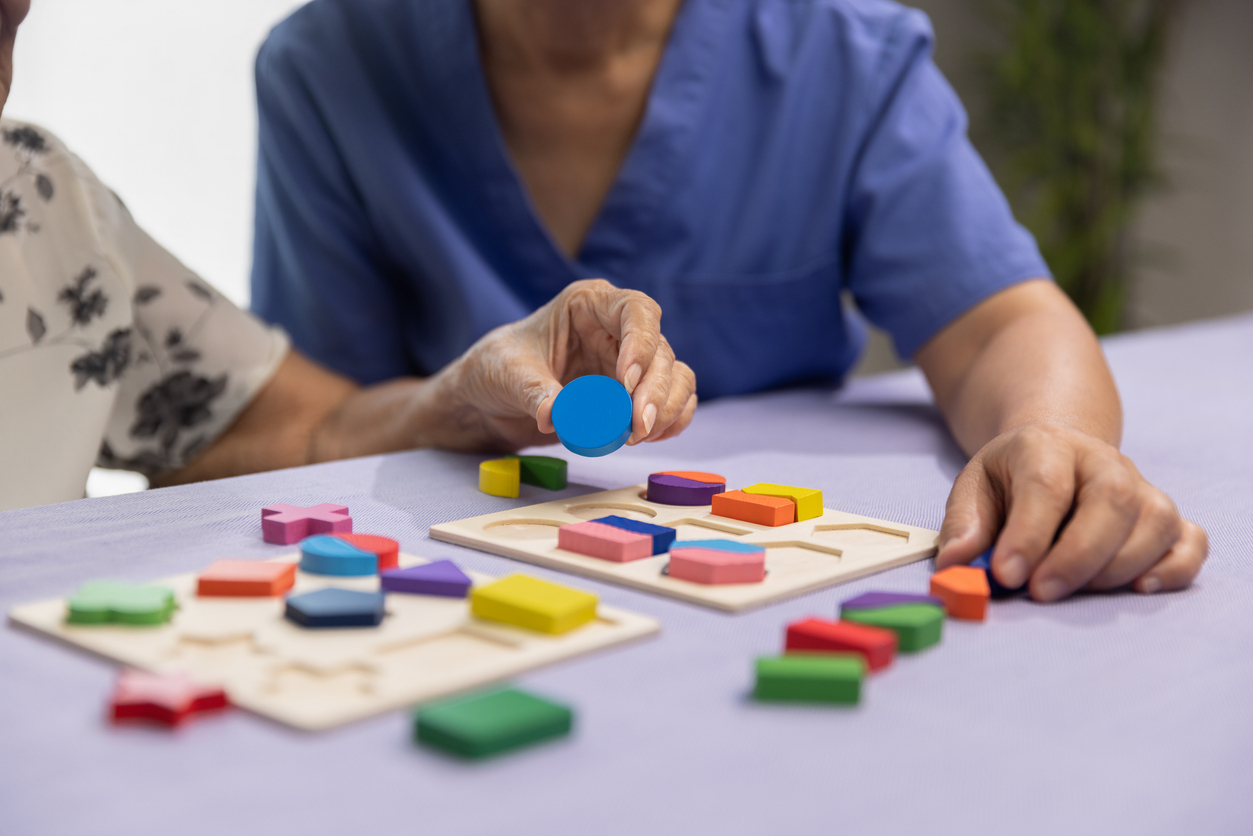As we get older, it’s common to worry about memory loss and other cognitive challenges. Many older adults experience difficulties with attention, memory, or completing daily activities that once felt simple. However, these changes don’t mean giving up on a fulfilling life. With the right memory care and cognitive health services, seniors—along with their family members—can enjoy peace of mind, maintain a strong sense of self, and continue to thrive.
The Importance of Memory Care & Cognitive Health
Memory care is a specialized area of senior care aimed at supporting those who have Alzheimer’s disease or another form of dementia. Through personalized care services, memory care residents can remain safe, socially engaged, and comfortable even as they navigate challenges related to memory loss. This specialized approach extends beyond simple supervision—it includes training in dementia care, specialized training for staff, and structured daily activities that are designed to enhance quality of life for seniors.
At the All Seniors Foundation, we believe in empowering older adults to take control of their cognitive health by offering a variety of care options. Whether an individual is already living with dementia or simply wants to bolster their memory, there are effective strategies to maintain mental acuity, independence, and overall well-being.
What Makes Memory Care Unique?
Unlike standard long term care, memory care facilities and memory care communities offer a secure environment specifically tailored to the unique needs of seniors with cognitive conditions. This usually includes:
- Specialized training: Staff members receive focused training in dementia care so they can effectively manage behavioral changes, communication challenges, and individual needs.
- Memory care units: Dedicated sections within assisted living facilities or standalone communities provide specialized services for those with Alzheimer’s disease or other forms of dementia.
- Personal care: Assistance with dressing, bathing, medication management, and other day-to-day needs is offered to ensure memory care residents remain safe and comfortable.
- Structured daily activities: Programs often include puzzles, music therapy, art classes, and gentle exercises that stimulate the mind and foster social interaction.
- Peace of mind: Families can rest assured knowing their loved ones are receiving 24-hour support in a secure, engaging environment.
Is It Time for Specialized Memory Care?
Deciding whether you or a family member needs specialized memory support can be difficult. Look for warning signs like:
- Increased Forgetfulness: Consistently misplacing items or forgetting important dates.
- Difficulty Handling Daily Tasks: Struggling to prepare meals, manage medications, or navigate the home safely.
- Worsening Behavior or Personality Changes: Showing signs of confusion, anxiety, or withdrawal.
- Safety Concerns: Wandering away from home, forgetting to turn off appliances, or struggling to manage finances.
If these challenges become more frequent, it may be time to explore memory care units within assisted living facilities or other care options that provide a secure environment and comprehensive care services.
Types of Memory Care & Cognitive Health Services
Thankfully, there is no one-size-fits-all approach to memory care. Depending on individual needs, seniors and their families can consider:
- Assisted Living Facilities with Memory Care Units: These communities have staff specially trained to help people living with dementia, offering structure and round-the-clock assistance.
- Dedicated Memory Care Facilities: Some communities exclusively cater to individuals with Alzheimer’s disease or another form of dementia. They offer specialized activities, meal plans, and staff with specialized training.
- Adult Day Programs: Designed for seniors who need supervised care during the day. Participants enjoy socializing, nutritious meals, and engaging activities in a secure environment.
- Home-Based Care Services: For those who prefer to stay at home, personal caregivers can assist with daily activities, medication, and companionship. This option also provides respite for family caregivers.
Promoting Cognitive Health at Home
Even if you choose to remain at home, there are simple steps you can take to support cognitive health:
- Engage the Mind: Read, work on puzzles, or join a discussion group. These activities keep the brain active and engaged.
- Stay Physically Active: Regular exercise, such as walks or light stretching, promotes blood flow and overall well-being.
- Eat a Balanced Diet: Nutritious meals rich in fruits, vegetables, and lean proteins can boost physical and cognitive health.
- Foster Social Connections: Stay involved with community groups, clubs, or volunteer opportunities to ward off loneliness and keep the mind sharp.
- Maintain a Sleep Routine: Aim for 7–8 hours of rest each night for optimal brain function.
The Role of Family Support
Family members often provide a crucial support system for someone living with dementia or experiencing memory loss. If you’re a caregiver:
- Communicate Regularly: Regular check-ins help reduce isolation and keep seniors engaged.
- Offer Consistent Routines: Predictable schedules can help manage anxiety and confusion.
- Seek Professional Guidance: Connecting with specialists in memory care or cognitive health ensures you’re aware of the best care options.
All Seniors Foundation: Your Partner in Memory Care
At All Seniors Foundation, our mission is to empower older adults and their families with access to the highest-quality memory care services. We guide you toward reputable memory care facilities, offer resources on assisted living facilities and long term care, and provide educational tools on training in dementia care. By connecting you with trustworthy memory care communities, we strive to help you achieve a sense of peace of mind and preserve the dignity of those you love.
Frequently Asked Questions
Here are answers to common questions about memory care and cognitive health:
- What is the difference between assisted living and memory care?
- While many assisted living facilities cater to a wide range of needs, memory care units are specifically designed for individuals who have Alzheimer’s disease or another form of dementia. They feature a secure environment and staff with specialized training to handle cognitive challenges.
- How can I decide which care option is best for my family member?
- Consider the level of help they need with daily activities, their social preferences, and whether they require round-the-clock supervision. Speaking with healthcare professionals and visiting potential memory care facilities can also help you make an informed decision.
- Does memory care focus only on safety?
- Safety is a priority, but memory care communities also provide social engagement, therapeutic activities, and personal care to enhance residents’ quality of life. The goal is to help seniors stay engaged and maintain their independence for as long as possible.
Empowering Seniors Through Comprehensive Support
Memory care and cognitive health services are about much more than just managing memory loss. They’re about nurturing meaningful connections, maintaining dignity, and promoting the highest possible quality of life for seniors. Whether you’re just starting to notice signs of dementia or have a loved one who requires full-time support, the key is to explore the many care options available.
Remember, you don’t have to face the journey alone. All Seniors Foundation is here to help you find reliable information, connect with reputable memory care facilities, and make confident decisions that enrich the lives of those you care for.
To learn more about memory care, cognitive health services, or assisted living facilities offering specialized programs, reach out to All Seniors Foundation. We’re dedicated to supporting you every step of the way.









